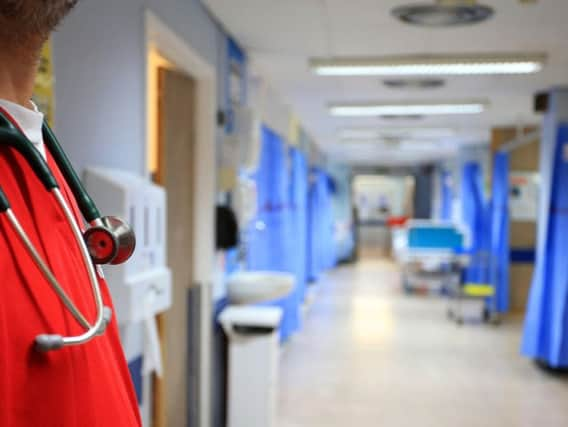Cancer survival figures soar amid diagnoses fears


The average survival rate for Wigan Borough Clinical Commissioning Group (CCG) patients is 71.7 per cent, which is in line with national performance.
This figure, released in a data set from the Office for National Statistics, has increased from 55.1 per cent in 2000.
Advertisement
Hide AdAdvertisement
Hide AdBut despite the promising figures, health officials have remained concerned over diagnosis times, setting a target for all cancer patients to be diagnosed within 28 days by 2020.
The new study found that in 2014 the median number of days in the UK from first relevant presentation to the date of diagnosis was 40 days.
This ranged from 15 days to 86 days, according to the research published in the British Journal of General Practice.
Researchers examined data on more than 17,000 patients diagnosed with cancer in 2014. They found that GPs referred these patients on to specialists within five days on average.
Advertisement
Hide AdAdvertisement
Hide AdPatients with breast cancer had the shortest time to diagnosis, waiting on average just 14 days. But those with prostate cancer had a median time to diagnosis of 55.5 days. Figures for breast cancer, lung and colorectal cancer survival show that 95.7 per cent of breast cancer patients in Wigan survived in 2015 compared to 82.2 per cent of those suffering with colorectal cancer.
The authors of the study found that the time from referral to being told the diagnosis of cancer in the UK exceeded 28 days in 54 per cent of patients.
This included 19% of patients with breast cancer having to wait longer than 28 days compared with 74 per cent of melanoma patients.
For one in five patients (22 per cent) the GP considered there to be an “avoidable delay” in the patient receiving their diagnosis. Delays were most frequently attributed to the patient, primary or secondary care clinician, and system factors.
Advertisement
Hide AdAdvertisement
Hide AdNHS England has set an ambition for all people to be diagnosed with cancer, or that cancer will be excluded, within 28 days of them being referred by their GP by 2020.
Meanwhile, another report out today has revealed that childhood cancer survivors are between three and six times as likely to develop a second cancer than those who have not had the disease.
Those who have suffered from cancer also naturally age faster than their peers, a study published in the online journal ESMO Open found.
The authors said that thanks to more effective diagnosis and treatment, the number of cancer survivors is set to rise. But they are more likely to develop long-term conditions and sooner than the general population.
Advertisement
Hide AdAdvertisement
Hide AdThey found a wide range of side effects and late complications, which they said have implications not only for the individuals concerned, but also for health services.
Other findings included that childhood cancer survivors’ estimated life expectancy is 30% lower than that of the general population, and the risk of frailty among bone marrow transplant recipients is around eight times as high as that of their siblings.